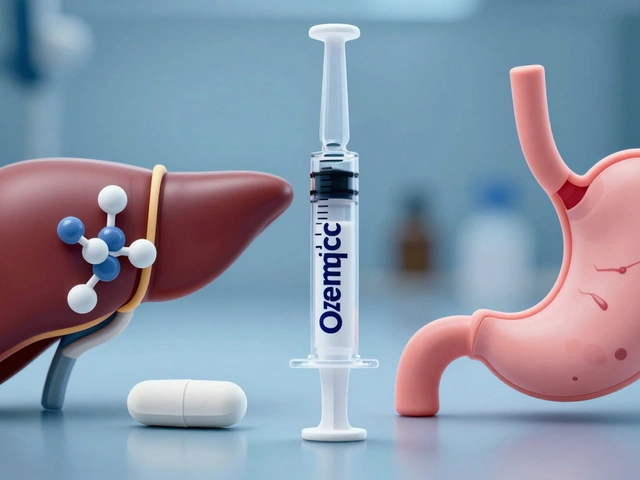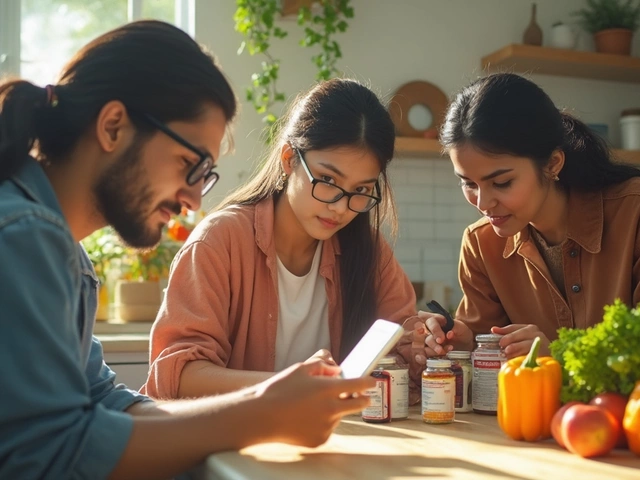Food Combinations: What’s Safe and What Can Trigger Medicine Side Effects?
Ever wondered why your doctor warns you not to eat certain foods with your prescription? It’s not just old‑school advice – mixing the wrong foods with medicines can actually change how a drug works. In India, where we enjoy a rich palette of spices, grains, and fruits, knowing which combos are safe can keep you from unwanted side effects.
Common Food‑Medicine Interactions You Should Know
Grapefruit and statins – That tangy fruit blocks an enzyme that helps break down cholesterol pills. A single glass can raise drug levels, leading to muscle pain or liver strain. If you love grapefruit juice, swap it for orange or apple.
Dairy and antibiotics – Calcium binds to many antibiotics like tetracycline and reduces absorption. A glass of milk right after a dose can make the medicine less effective. Take the pill with water and wait two hours before a dairy snack.
Iron supplements and tea/coffee – The tannins in tea and coffee act like a magnet for iron, pulling it out of your bloodstream. If you’re on iron tablets, enjoy your chai at least an hour after the dose.
Leafy greens and blood thinners – Vitamin K‑rich foods such as spinach or fenugreek can counteract warfarin, a common blood thinner. Don’t cut them out completely, but keep portions consistent and inform your doctor.
High‑protein meals and levothyroxine – Protein can interfere with thyroid hormone absorption. Take levothyroxine on an empty stomach, preferably 30 minutes before breakfast.
Practical Tips for Managing Food‑Drug Pairings
1. Read the label. Most Indian drug packs include a section on food interactions. Keep it handy. 2. Schedule wisely. If a medication needs an empty stomach, set a reminder to take it before your first meal of the day. 3. Stick to a routine. Consistency helps your body adjust and gives your doctor a clear picture of what works. 4. Ask your pharmacist. A quick chat can reveal hidden interactions you might have missed. 5. Use a food diary. Jotting down meals and medicines for a week can highlight patterns – like feeling dizzy after a certain dinner.
When you follow these simple steps, you reduce the risk of unexpected side effects and get the most out of your treatment.
Beyond the clinical side, traditional Indian wisdom also talks about food combos. Ayurveda warns against mixing milk with sour fruits, claiming it can cause indigestion. While the science isn’t fully settled, many people find that avoiding such pairings helps settle the stomach, especially when on medication that already irritates the gut.
Remember, every body reacts a bit differently. What’s a harmless combo for one person might be a trigger for another, especially if you have underlying health issues like diabetes or kidney disease. Always bring up any regular food habits with your doctor during check‑ups.
Bottom line: enjoying the flavors of Indian cuisine doesn’t have to clash with your meds. A little awareness, timing, and a dash of consistency go a long way. Stay curious, ask questions, and keep your health on track while still savoring the foods you love.

Ayurveda's Take on Foods You Shouldn't Combine
Ayurveda, an ancient Indian system of medicine, emphasizes the importance of food combinations for optimal health. Certain food pairings can affect digestion and lead to imbalances in the body. This article explores key food combinations that are best avoided according to Ayurveda, providing practical dietary tips for better digestion and well-being.




